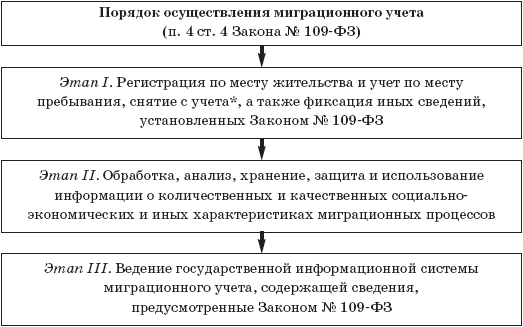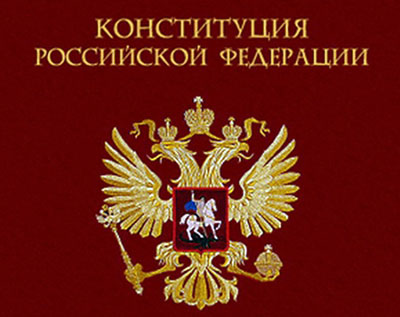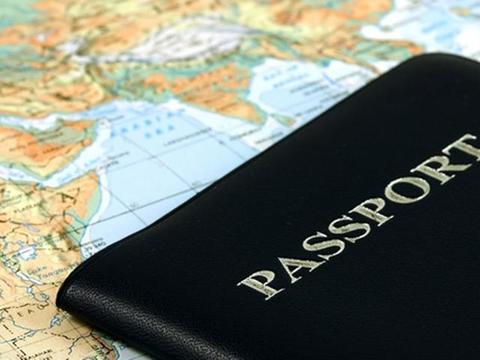Rights of stateless persons in Russia
Stateless persons are individuals who do not have the citizenship of any of the existing countries. In other words, stateless persons are people who do not have resident status. Stateless persons can be found in any republic, including Russia. It is in this state that stateless persons make up about 0.10 percent of the total population. Let's try to figure out how "status is being lost", and what kind of responsibility and duties such persons have.
The main administrative provisions of persons without citizenship in the Russian Republic are regulated by the law on migration registration. According to the provisions of the law, stateless persons residing in the Russian Federation temporarily or permanently are required to comply with the current legislative acts.

According to Law No. 109 of the Russian Federation, stateless persons are individuals who live in the territory of a certain country, but for some reason cannot be recognized as full residents of this state. In the legal vocabulary, stateless persons are called stateless.
Stateless persons are not deprived of administrative and legal duties. People with this status bear the same responsibility to the country of permanent residence as the citizens of this republic. They are also obliged to pay taxes, have the right to choose a permanent place of residence, take care of their health, receive social benefits and others.

The peculiarity of people with this status is that they do not have the right of diplomatic protection, since they do not have a permanent country of citizenship. Also, a distinctive feature is that many of the stateless do not have internal passports.
Unfortunately, today the country has a notion that a stateless person is something terrible and necessarily criminal. But it's not. It is wrong to believe that a stateless person is a socially disadvantaged or disabled person who has some shortcomings. In our time, everyone is at risk of becoming special without citizenship.
There are several reasons why a person may lose or not obtain the status of a citizen. This:

If a person for some reason refused the old status, but did not accept the new one, he becomes a stateless person.

Regarding the last point, I would like to note that people with a “red” USSR passport are today considered stateless.
Rights and obligations of stateless persons
All stateless persons permanently residing in the territory of any of the countries have administrative rights and obligations. In European countries, able-bodied stateless persons have the opportunity to enjoy all the social benefits provided to them.
The only prohibition for people with this status is that they do not have the right to become participants in elections at the local or state level. That is, according to the laws, in Europe a stateless person does not have the right to hold a high state post, but he can work and study.
Capable stateless persons have the right to live in the republic only if they have a residence permit or a temporary residence permit in this republic. If a stateless person does not have a permit, then he is obliged to leave the country after 3 months of stay.
Otherwise, a person without citizenship will be deported.
As for Russia, it can be noted that stateless persons in this country do not have the right to participate in elections. A person without nationality may well take out health insurance for himself. Stateless persons also have the full right to enter or leave the state. A person who does not have civil status has the right to officially find a job and pay taxes. Employment and payment of taxes is regulated by the Law of the Russian Federation No. 115.
According to this law, all stateless persons who want to find a job must obtain a patent without fail.
All employed able-bodied individuals are required to pay tax at 1.8 percent of their monthly salary. This tax is paid into the social insurance fund in case of unemployment. If a stateless person loses his job, he can count on this allowance.
Stateless persons cannot hold positions in the public service. That is, a person without citizenship does not have the right to work as a prosecutor, notary, judge, etc. Such persons, according to legal provisions, may work no more than 40 hours per week. Employed stateless persons are also provided with sick leave and vacation.
Persons without citizenship have the right to communicate on an equal footing with residents of Russia.
It is worth remembering that in addition to rights, a stateless person also has obligations. So, after entering the Russian Republic on a visa or other permit document, a person without citizenship must register within the first 3 days after entry. Migration registration is carried out at the regional branch of the migration service.
A capable person without citizenship is subject to both administrative and criminal liability for non-compliance, violation or non-compliance with the main provisions, rules and laws in force. This concerns responsibility for compliance with the migration regime.
In case of violation of duties and responsibilities regarding the stay according to the deadline for permits or visa documents, a capable person may be deported from the country. The decision is made in court. All costs associated with deportation are borne by the violator.
For administrative violations, a stateless person can be expelled from the country. Expulsion is a forced departure by a court decision. All costs associated with forced departure are also borne by the violator.
Border crossing
The concept of statelessness refers to a person who does not have permanent citizenship. Accordingly, if a person does not belong to one of the countries, then he does not have an internal civil passport. Nowadays it is difficult to meet a stateless person who has such a document.
Stateless persons are not deprived of the right to obtain visas and entry permits. But in order to obtain a visa, a stateless person will need to submit a document that will prove his identity. Such a document can be:
- Certificate confirming the fact of birth.
- Resident card.
- Temporary residence permit.
- Invalid passport.
Stateless persons can enter the republic only if they have a visa permit. A visa is made in the state from which a person who does not have a status arrives. If a stateless person does not have a visa, but is in the state, but he is considered an illegal immigrant who needs to be deported from the republic. The departure of a stateless person is also carried out on the basis of a visa.
Obtaining a residence permit
Often a stateless person does not have any documents that could prove his identity. In this case, if a person is temporarily or permanently in the Russian Republic, he should apply to the regional department of the FMS with a request to issue a temporary residence permit or residence permit.
To obtain a residence permit or a temporary permit, a stateless person must apply to the FMS. You can get a temporary permit for 1 year. A residence permit is granted to a stateless person for 5 years.
But before obtaining a residence permit, a stateless person must live in the republic for at least one year on a permit allowing temporary residence.
The procedure for obtaining permits is simple: a stateless person comes to the organization, presents special documents proving that he is not a resident of any of the existing countries and writes an application for a VRV. After that, a stateless person is required to undergo a fingerprinting procedure (fingerprinting).
Fingerprinting is required only for persons who are 18 years of age at the time of application. In addition to fingerprinting, a stateless person is photographed for a personal matter. This is done if he does not have documents with a photo that prove his identity.
Fingerprint procedure




